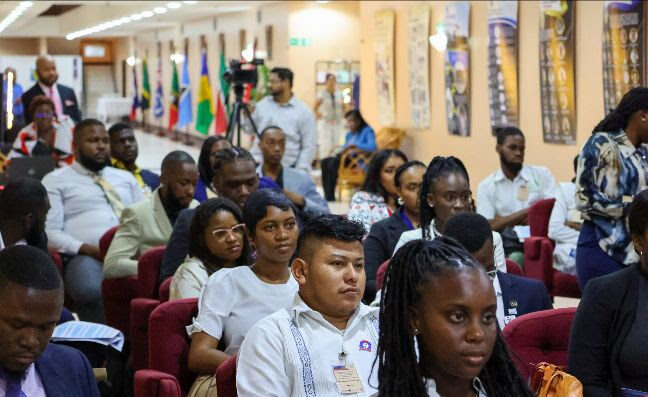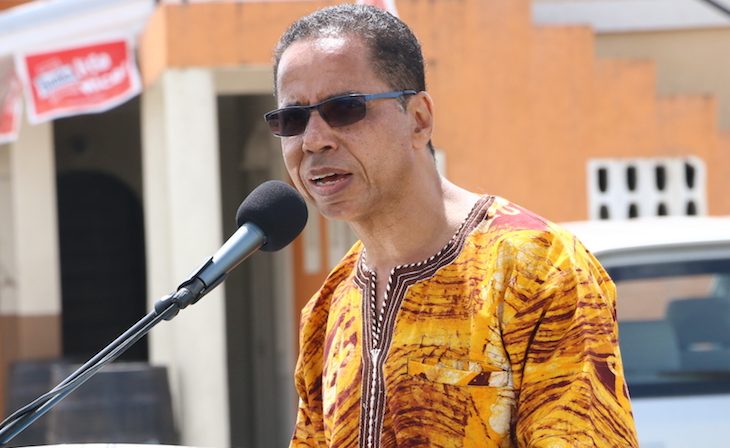This week Europeans celebrate the annual “Climate Diplomacy” week to highlight climate action in the EU and beyond. It is a year and a half since the Paris Agreement entered into force on 4 November 2016 that was agreed with the excellent cooperation of the Caribbean. Its central aim is to strengthen the global response to the threat of climate change by keeping the rise in global temperature for the remainder of this century well below 2 degrees Celsius and to limit the temperature increase even further to 1.5 degrees Celsius.
In an effort to achieve these lofty goals much of the focus has been placed on governments to spearhead the effort. However, it is one that public administrations cannot undertake on their own. For while policymakers have a strong role to play in delivering the Paris Agreement, by implementing policies that drive even more investment into low carbon and climate resilient solutions, the private sector too has a significant role to play, which can lead to more resilient enterprises.
Prior to the recently held G7 Summit in Canada, 319 institutional investors with $28 trillion in assets under management, urged governments to step up their ambition and action, to achieve the goals of the Paris Agreement. The investors noted that with the global shift to clean energy, much more needs to be done to accelerate the low carbon transition and to improve the resilience of economies, societies and the financial systems to climate risks.
As of April 2018, more than 100 global corporations have set science-based targets, while another 270 have made formal public commitments to do so. We hope this new tool and guidance facilitates more commitments and more approved targets.
In countries such as Barbados and the wider Caribbean, science-based greenhouse targets do not need to be elaborate as companies seek to contribute to national climate change adaptation strategies. Companies can commit to zero emission vehicle fleets through the EV100 initiative, which aims to the transition enterprises to electric vehicles; in addition, there is the RE100 initiative whereby businesses commit to 100% renewable power – which in the case of the region is primarily achieved by using solar energy.
Developments in the international climate negotiations and the climate finance landscape, in particular the signing of the Paris Agreement and operationalisation of the Green Climate Fund, have opened up opportunities for enhanced private sector action on climate change. The Paris Agreement demonstrates a common global acknowledgement that urgent climate action is needed, and there is broad consensus among the signatories that translating the agreement into action will require significant finance from the private sector.
The Paris Agreement sets a target of US$100 billion per year of climate finance by 2020, which is expected to be mobilised by developed countries and channelled through the Green Climate Fund. According to the International Energy Agency, to limit temperature increase to 2°C, cumulative investment of US$53 trillion will be needed by 2035. This represents, between US$780 billion and US$2.3 trillion annually by 2020 and 2035, respectively, in low-carbon infrastructure investment. Public sector balance sheets are only able to cover a small proportion of this. All stakeholders must therefore seek ways to facilitate private sector finance in climate projects.
In the Caribbean, the EU has allocated considerable sums of grant aid for Climate Change adaptation at the regional level. Furthermore, some countries have set aside their national grant aid allocations under the European Development Fund to promote and implement renewable energy and energy efficiency measures. For instance, in the case of Barbados (separate mention of other OECS for publication in other countries than Barbados), through the Public Sector Smart Energy Programme (5.8M euros) government has identified the retrofitting of at least 12 government buildings with energy efficiency technologies and the installation of solar photo voltaic systems on these buildings. In addition, approximately 85% of public street lights will be retrofitted with energy efficiency technology. The project will also finance a fleet of government electric vehicles powered by Renewable Energy sources to promote low carbon transportation techniques in Barbados. In the OECS the Sustainable Energy for the Eastern Caribbean (SEEC) programme has provided 4.45M euros to 6 OECS countries. The objective of this programme is to reduce participating OECS countries’ dependency on fossil fuels. This will be pursued by displacing the use of fossil fuels in electricity generation with economically viable investments in Renewable Energy and Energy Efficiency.
In addition, the European Union Global Climate Change Alliance (GCCA) initiative funded a project for 10.6M euros, currently being implemented by the OECS . Its purpose is to improve the region’s resilience to the impact of climate change through effective and sustainable land management frameworks and practices, as well as the implementation of climate change adaptation measures in every Member State of the OECS.
Internationally, the European Union is the world’s largest contributor to Climate finance and is committed to scaling up contributions towards the joint international target of USD 100 billion per year by 2020.
The EU devotes at least 20% of its budget to climate-related activities and has committed to providing two billion euros as grant funding annually to help developing countries deal with climate change. On top of this the European Investment Bank will also set aside two billion euros to help developing countries in their action for climate change.
Going hand in hand with climate change mitigation are climate adaptation strategies, examples of which include using scarce water resources efficiently, adapting building codes to climate conditions and extreme weather events and using tree species less vulnerable to storms.
The global nature of climate change means that cooperation and action at the international level is important. The EU has helped to push forward international climate change negotiations and it will continue to play its part in ensuring that the ideals of the Paris Agreement are pursued and that developing countries are provided with the necessary assistance to participate in such a lofty goal. I am confident that we can count on the commitment of the Caribbean to the same ideals!
(Ambassador Daniela Tramacere is the Head of the EU Delegation to Barbados, the Eastern Caribbean States, the OECS, and CARICOM/CARIFORUM)




